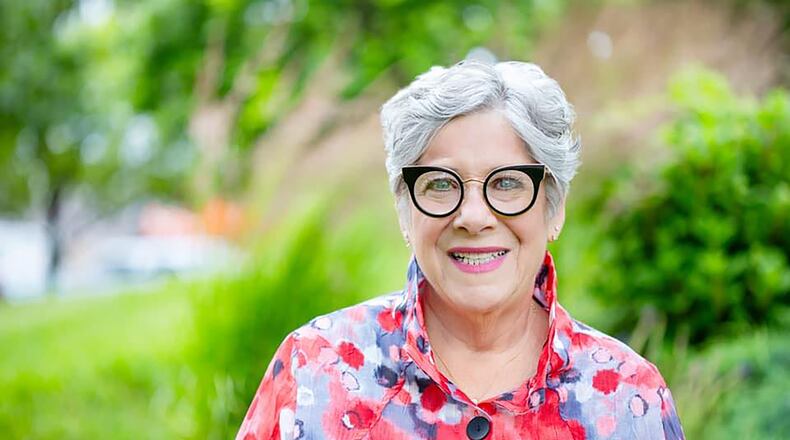Joni Watson of Kettering is an example from the Baby Boomer generation whose retirement looks different than that of her parents’ generation.
Watson worked as an educator nearly her entire professional career. She grew up in Dayton and graduated from Meadowdale High School in 1975. After high school she studied art education at Wright State University.
“I was always an artsy kid,” Watson said. “I auditioned for a new program at the time - the Living Arts Center - and got in for dance but switched over to art.”
Watson’s experience at the LAC, a program created by Dayton Public Schools that ran from 1967-1977 shaped her life, opening the door to her future teaching art in Dayton Public Schools.
“I lived in Israel for a year after I graduated from college,” Watson said. “My plan was to work for the family business.”
Watson’s grandfather and then her dad owned a beauty supply company that ended up closing in 1986. Watson worked there and also as a waitress at Mama DiSalvo’s restaurant in Kettering where she met the principal from Kiser Middle School in Dayton.
“We talked and he said he needed an art teacher,” Watson said. “I got married on a Sunday in 1986 and the very next day I started my first day of teaching.”
Watson ended up moving around and taught both middle and elementary school at Wilbur Wright. She also taught art at Horace Mann and became actively involved in the teacher’s union — the Dayton chapter of the National Education Association.
“I served on the NEA as a vice president and on the women’s issues committee,” Watson said. “I had good relationships with teachers and administrators, all of which have always been very important to me.”
In 2019, Watson was offered an early retirement incentive, aimed at people who had worked enough years to retire with full benefits but hadn’t yet decided to retire. Since Watson was teaching in a difficult to replace subject area, she could request an additional year of teaching before fully retiring. At 63 years old, she had no plans to retire for at least five years.
“When COVID hit, DPS laid off almost all the art, music and PE teachers because they didn’t think we could teach over Zoom,” Watson said.
Watson was offered a position working downtown creating videos designed for remote learning. She didn’t like working by herself, but the thought of full retirement made her apprehensive.
“The closer I was getting to retirement, the more I started panicking,” Watson said. “What I did was who I was.”
In 2021, a friend who knew Watson didn’t want to stop working, sent her an article about the Del Mar Encore Fellows, a program of the Dayton Foundation designed to change the way society views older adults and their ability to contribute to the workforce. Fellows are hired to support local nonprofit organizations that have needs ranging from creating new technology to help low-income adults gain increased access to healthcare to helping decrease low literacy among certain adult populations.
“I applied to help Brunner Literacy Center (BLC) and was accepted,” Watson said. I didn’t know anything about them when I started.”
Watson helped develop a coalition of literacy leaders, put together a reliability study of BLC’s printed materials and spent time in the community marketing the program. Del Mar fellows usually work between 20 – 30 hours weekly and are compensated with a stipend from the Dayton Foundation.
“BLC applied to keep me on for a second year in 2022,” Watson said. “I met with literacy leaders to find out how we could help them, and I set up resource tables aimed at English language learners. "
Watson completed her second year as a fellow and BLC’s Executive Director Myla Cardona-Jones asked her if she was interested in a permanent part time role, doing the same thing as she had done the past two years.
“Joni has made a significant impact on BLC through her outstanding outreach efforts,” Cardona-Jones said. “We are forever indebted to the Del Mar program and to Joni who truly is a gem in the community.”
Today, Watson is working 20 hours a week and couldn’t be happier. She loves building relationships with members of the community and spreading the word about BLC. And she says she can’t imagine slowing down any time soon.
“Retiring can be scary because the future is uncertain,” Watson said. “The Del Mar Fellows program is great because it helps ease you into what’s next. I love what I’m doing.”
About the Author





